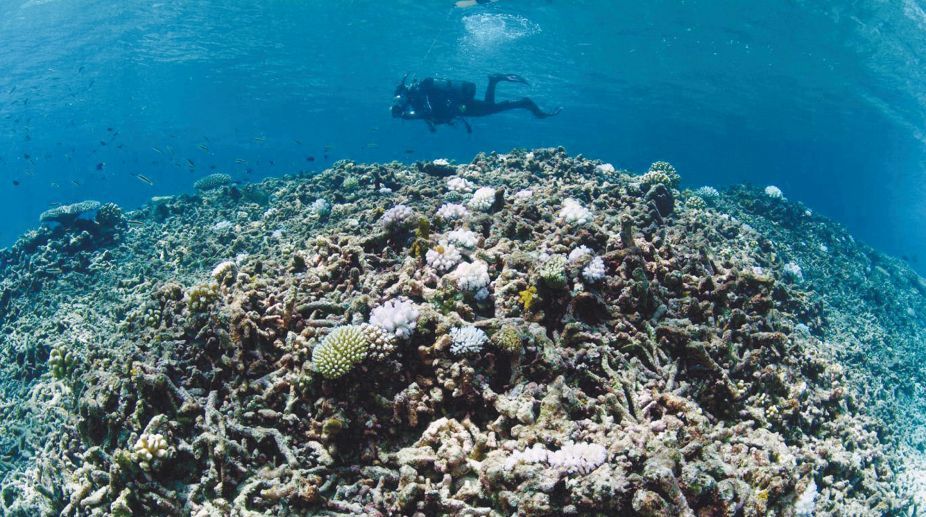To help save reefs from climate change
Leading scientists are considering “radical interventions”to save the world’s coral reefs. Galvanised by the coral bleaching events of the past few years, which have been described as the “longest, most widespread, and possibly the most damaging”on record, a new committee has been formed by the US National Academies of Sciences, Engineering and Medicine.
It is made up of the nation’s top coral researchers, who will consider a range of solutions to the crisis. They have already launched a two year project to assess the risks and benefits of different intervention strategies, emphasising the need for action.
“The dire situation is here now,” Dr Mark Eakin, coordinator of the National Atmospheric and Oceanic Administration’s (NOAA) Coral Reef Watch, told the committee at its first meeting last week. Proposals being suggested by scientists range from genetic modification of corals to geoengineering the atmosphere in an effort to cool the reefs.
Rising global temperatures have been linked with coral bleaching, which results from stressed corals expelling the algae that provide them with the energy they require to survive.
A recent study published in the journal Scientific Reports predicted that at the current rate, “annual severe bleaching” will impact 99 per cent of coral reefs within the century. Other threats to corals around the world include pollution, destructive fishing practices and disease outbreaks. Some estimates suggest that 90 per cent of the world’s corals will be dead 2050.
“We know that climate change is accelerating and accelerating bleaching. And so we need to make sure that this study isn’t something that talks about some nice areas of science but is too little and too late for the corals,” said Dr Eakin.
The project is being sponsored by the US National Oceanic and Atmospheric Administration, which is advocating “immediate and aggressive action” to save the world’s corals. Though around a quarter of marine life is estimated to depend on coral for survival, reefs cover less than two per cent of the ocean floor.
Due to the environmental and economic services provided by coral reefs, they bring enormous value to humans as well. The Great Barrier Reef, for example, is thought to be worth £33bn to Australia’s economy.
Despite this, in the recent committee meeting scientists emphasised the relative lack of resources available to address the major environmental crisis facing them.
The recent announcement of plans to save the Great Barrier Reef was dismissed by environmentalists as insufficient, with some accusing the Australian government of “tinkering around the edges” without getting to the heart of the issue.
Some on the committee expressed shock and sadness at the scale and rate of damage that has been inflicted on coral reefs in recent years.
“I’ve gone through many, many different stages of grief, from visceral sadness to disbelief and anger. I’ve definitely had some despondence and actually was planning for a career change because I really, truly didn’t see hope for a while there,” Joanna Walczak, a regional administrator at the Florida Department of Environmental Protection told the committee. “But I’ve ultimately come through all of that and have made it back with focus and determined action to do everything in my power to make a difference with whatever little time we have left.”
While committee members acknowledged the scale of the problem facing them, they also expressed hope that investigating novel solutions would give the reefs a fighting chance.
“I’m going to make a really hard ask of you all,” Ms Walczak told the committee. “I need precautionary principle-based, expert-opinion-derived leaps of faith. Because after all I’ve seen, I’m ready to take these risks now.”>